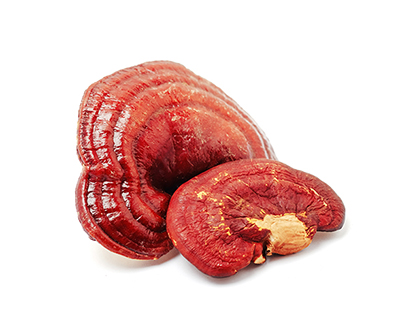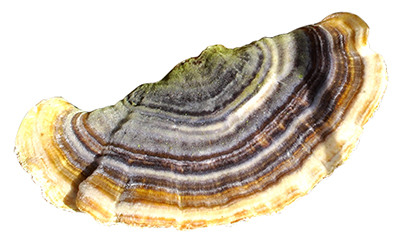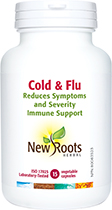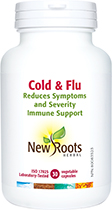Guide to Slaying Cold-and-Flu Season
As the chill of autumn makes way for winter, our battle against the annual cold-and-flu season is underway. With health being at the top of everyone’s mind, it’s more important than ever to keep our immune systems healthy and ready for what the season has in store.
To understand the best ways to support our immunity, we first need to understand our immune system. At its core, the immune system acts as our little army, protecting us from anything that can harm us from our external environment. There are two branches of the immune system: the innate system and the adaptive system.
The innate system is composed of our immune soldiers on the front lines. This part of our immune system is constantly surveying what we are exposed to, making sure whatever comes our way is not harmful to us. This branch of the immune system reacts quickly but has no memory. This means that the response is the same regardless of whether the body has encountered the same pathogen before. This branch includes chemical barriers like stomach pH and physical barriers like the lining of the skin and gut.
The adaptive immune system is highly specific. It is like the special operations team of the immune system: They recognize pathogens and mount a specific response to each of them. Since this branch of the immune system is highly adaptive, it needs to be primed and activated, but sometimes, this can take a while. Thankfully, the adaptive immune system also has immunologic memory, which means that the more we are exposed to that pathogen, the stronger and faster the response time.
The most crucial part is that these two branches communicate through immune cells called dendritic cells—these are found in places that have the most contact with the outside world, like our skin epithelium and gastrointestinal mucosa. When dendritic cells are exposed to pathogens, they enter the lymph, travel to the closest lymph node, and present the antigen (a marker for the pathogen) to a T cell, which is a part of your adaptive immune system. You can think of this as an interaction between a messenger and a commander of an army. The messenger relays information about the pathogen, and the commander T cells activate the proper forces to fight that pathogen.
Lifestyle
We can help support our little army in many ways, and the easiest way is through lifestyle habits. Having a good routine regarding sleep, exercise, and diet will help our body and immune system function optimally and have a positive impact on immunity.
Food can be a daunting subject. Many people need support when it comes to which foods to choose. Since dietary patterns can either enhance or depress our immune system, one of the most important things we can do is eat well-balanced meals. For example, eating colourful vegetables, protein, and healthy fats can supply our bodies with phytochemicals and critical nutrients that support immune-cell development and function, like vitamin C, vitamin D, zinc, selenium, iron, and protein. Along with all those benefits, diets high in fruits and vegetables also provide fibre, which supports our gut. Gut health is important because 70% of your immune system is in the gut! Our microbiota and immune cells work together to defend us from external pathogens. Although our GI tract is inside our body, the interior of our gut is technically on the outside. Foods that we eat have a significant impact on the diversity and composition of our gut bacteria, which directly affects our immune system.
On the other hand, eating foods that are processed or high in sugars can negatively impact our immune system by promoting the growth of pathogenic gut bacteria, creating inflammation, and not making us feel our best!
 Sleep
Sleep
Good sleep hygiene is another important habit that we can utilize to support optimal immune function. Sleep is the time that our body heals and rejuvenates itself. Without proper sleep, it is nearly impossible for our immune system to run at 100%, leaving us vulnerable to infections and illnesses. Some habits that can be helpful include winding down a few hours before you plan to go to bed and doing things like reading a book or having a cup of tea. Heading to bed earlier on the dark winter nights will also allow you to get adequate sleep—usually, seven to eight hours per night is the sweet spot!
One thing that I always remind myself of is that the things we do consistently affect us the most. For example, the food we eat and our lifestyle will always be a tremendous support. However, it never hurts to have extra support; this is where supplements can be helpful.
Vitamin D
Maintaining sufficient vitamin D levels is very important for immune function; however, it is difficult during the winter months, especially for those living in Canada. Studies have shown that those with vitamin D deficiency are eleven times more likely to get sick than those with adequate levels, and supplementing with vitamin D may reduce the chances of developing a cold or flu by 42%.[i] Before supplementing, it is helpful to see your doctor to get your vitamin D levels checked to ensure proper dosages for your body. Blood levels of vitamin D should be above 30 ng/dl, but optimal levels are closer to 50 ng/dl.
Zinc
Zinc has been studied extensively for immune function. It is essential for innate and adaptive immunity, and those who are zinc-deficient are at a higher risk of viral infections. Zinc aids with the development of immune cells and cytokines—cytokines help the immune cells communicate so they can respond adequately. Zinc helps produce a balanced number of these cells. Zinc is also an antioxidant vital for barrier integrity and function, which keeps pathogens from entering our bodies. Lastly, zinc has a role for inhibiting viral replication and modulating inflammation. Simply said, this little mineral plays a massive role in our immune systems.
 Probiotics
Probiotics
A healthy gut supports a healthy and functional immune system. There are many probiotics for different conditions. Most research for immune function has been on probiotics that have a high number of colony-forming units—you will see these labelled as CFUs. Depending on what strains your doctor recommends, probiotics have various functions. For example, Lactobacillus acidophilus is one of the most commonly recognized probiotics and is present in the intestines naturally.
It aids in producing lactic acid, which helps inhibit the growth of harmful bacteria. By preventing the colonization of harmful bacteria and enhancing the intestinal barrier, it indirectly supports immune function. Lactobacillus rhamnosus has been shown to boost the production of antibodies in the body. It also can have anti-inflammatory effects. Bifidobacterium longum is one of the first bacteria to colonize our bodies at birth. It aids in breaking down carbohydrates and fighting off harmful bacteria, which can support overall immune function. Lactobacillus casei can enhance the number and activity of macrophages and natural killer cells, key components of the immune system. It also can stimulate the production of cytokines, which play a role in immune responses.
Bifidobacterium bifidum helps maintain the integrity of the gut lining by producing mucin, a glycoprotein that forms a protective layer on the surface of the intestinal lining. This mucous layer helps create a physical barrier that can reduce the adhesion of harmful microorganisms to the gut lining, preventing infections. When looking for a probiotic, it is crucial to go with one that is enteric-coated and refrigerated—this ensures that the probiotics survive the harsh stomach acid and can work their magic where they need to go!
NAC
N‑Acetylcysteine (NAC) is an acetylated form of the amino acid l‑cysteine that eventually converts to the antioxidant glutathione. It has antioxidant, anti-inflammatory, and mucolytic properties, which means that it helps break down mucus in the lungs. NAC also can modulate inflammation and enhance immune-cell function. With its multifaceted role, it can not only help reduce the severity of symptoms we experience when we get sick but also help manage long-term lingering symptoms.
Medicinal Mushrooms
While different mushroom species have distinct characteristics and advantages, they share a consistent trait: They all significantly bolster immune health. This effect is amplified when various mushrooms are combined, as their metabolites harmoniously interact and enhance one another’s benefits. In a broader sense, mushrooms do not strictly “amplify” the immune system; instead, they assist in achieving a balanced response by fostering the stable regulation of immune cells, specifically balanced T helper cells. The purpose of incorporating mushrooms, recognized for their subtle yet effective properties, is to assist in immune modulation. The immunomodulating properties of mushrooms may help prevent us from getting sick, support us during recovery, and help with persistent symptoms. People with autoimmune conditions should talk to their doctors before trying medicinal mushroom supplements. Some examples include:
 Ganoderma lucidum, also called reishi, is known for its anti-inflammatory, antioxidant, and immunomodulatory properties. It works primarily by regulating the immune system: It can tone down an overactive system or enhance a weakened one. Generally, it amplifies the count of active immune cells.
Ganoderma lucidum, also called reishi, is known for its anti-inflammatory, antioxidant, and immunomodulatory properties. It works primarily by regulating the immune system: It can tone down an overactive system or enhance a weakened one. Generally, it amplifies the count of active immune cells.
 Coriolus versicolor, or turkey tail, is among the most researched mushrooms. It promotes the production of immune cells, including T cells and natural killer (NK) cells. It modulates the immune system, boosting it when needed, making it valuable for persistent infections and postinfection fatigue. Its high fibre content is a prebiotic, nourishing our beneficial gut bacteria.
Coriolus versicolor, or turkey tail, is among the most researched mushrooms. It promotes the production of immune cells, including T cells and natural killer (NK) cells. It modulates the immune system, boosting it when needed, making it valuable for persistent infections and postinfection fatigue. Its high fibre content is a prebiotic, nourishing our beneficial gut bacteria.
As we trudge through the cold and flu season, it is important that we do not simply rely on reactive strategies but on proactive ones that allow us to build a solid foundation of health. By supporting our immune system through lifestyle choices, nutrition, and targeted supplements, we provide our internal army with the tools it needs to thrive. By doing this, we make a commitment to wellbeing, embracing habits that not only protect but enhance our overall health.
 Dr. Dasha Leneva, ND
Dr. Dasha Leneva, ND
A naturopathic physician based in British Columbia helping people understand their bodies so they can be more confident about their health. She believes that even small practical habits can make astounding differences in people’s lives.
[i] Denlinger, L.C., T.S. King, J.C. Cardet, T. Craig, F. Holguin, D.J. Jackson, M. Kraft, et al; NHLBI AsthmaNet Investigators. “Vitamin D supplementation and the risk of colds in patients with asthma.” American Journal of Respiratory and Critical Care Medicine, Vol. 193, No. 6 (2016): 634–641.

 Stores
Stores

